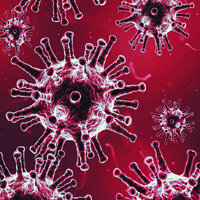The psychological impact of COVID-19 on people suffering from dysfunctional eating behaviours: a linguistic analysis of the contents shared in an online community during the lockdown

Submitted: June 23, 2021
Accepted: September 8, 2021
Published: December 20, 2021
Accepted: September 8, 2021
Abstract Views: 1913
PDF: 655
Appendix: 101
HTML: 31
Appendix: 101
HTML: 31
Publisher's note
All claims expressed in this article are solely those of the authors and do not necessarily represent those of their affiliated organizations, or those of the publisher, the editors and the reviewers. Any product that may be evaluated in this article or claim that may be made by its manufacturer is not guaranteed or endorsed by the publisher.
All claims expressed in this article are solely those of the authors and do not necessarily represent those of their affiliated organizations, or those of the publisher, the editors and the reviewers. Any product that may be evaluated in this article or claim that may be made by its manufacturer is not guaranteed or endorsed by the publisher.
Similar Articles
- Jung Ki Kim, Eileen M. Crimmins, Age differences in the relationship between threatening and coping mechanisms and preventive behaviors in the time of COVID-19 in the United States: Protection Motivation Theory , Research in Psychotherapy: Psychopathology, Process and Outcome: Vol. 23 No. 3 (2020)
- Daniela Di Riso, Alessandro Gennaro, Silvia Salcuni, Defensive mechanisms and personality structure in an early adolescent boy: process and outcome issues in a non-intensive psychoanalytically oriented psychotherapy , Research in Psychotherapy: Psychopathology, Process and Outcome: Vol. 18 No. 2 (2015): Special issue on Qualitative and Quantitative Research in Child and Adolescent Psychotherapy: part 1
- Marco La Marra, Walter Sapuppo, Giorgio Caviglia, Dissociazione e alessitimia in un campione di pazienti con Disturbo del Comportamento Alimentare , Research in Psychotherapy: Psychopathology, Process and Outcome: Vol. 12 No. 1-2 (2009)
- Lidia Borghi, Claudio Cassardo, Elisa Mingarelli, Elena Vegni, The relevance of social dreaming for action research: exploring jail workers’ unconscious thinking of the changes in the prison organization , Research in Psychotherapy: Psychopathology, Process and Outcome: Vol. 24 No. 2 (2021): SPECIAL ISSUE "Working on dreams, from psychotherapy to neuroscience"
- Raffaella Perrella, Nadia Del Villano, Giorgio Caviglia, Referential activity, dissociation, psychopathology and psychotherapy , Research in Psychotherapy: Psychopathology, Process and Outcome: Vol. 19 No. 2 (2016)
- Kim de Jong, Johanna Wilkens, Timothy Anderson, Kane Steggles, Facilitative interpersonal skills in benign versus challenging therapy situations in trainee therapists: a pilot study , Research in Psychotherapy: Psychopathology, Process and Outcome: Vol. 27 No. 2 (2024)
- Lindsey Myers, Howard Steele, Miriam Steele, Anne Murphy, Exploring maternal reflective functioning as a predictor of mother-child dyadic behaviour over time in a clinical context , Research in Psychotherapy: Psychopathology, Process and Outcome: Vol. 25 No. 1 (2022)
- Guillermo de la Parra, Paula Dagnino, Camila Valdés, Mariane Krause, Beyond self-criticism and dependency: structural functioning of depressive patients and its treatment , Research in Psychotherapy: Psychopathology, Process and Outcome: Vol. 20 No. 1 (2017)
- Francesco De Bei, Andrea Montorsi, Interaction Structure and Transferential Patterns in Brief Psychotherapy: A Single-case Study , Research in Psychotherapy: Psychopathology, Process and Outcome: Vol. 16 No. 1 (2013)
- Jordan Bate, Angelica Tsakas, Facilitative interpersonal skills are relevant in child therapy too, so why don’t we measure them? , Research in Psychotherapy: Psychopathology, Process and Outcome: Vol. 25 No. 1 (2022)
<< < 11 12 13 14 15 16 17 18 19 20 > >>
You may also start an advanced similarity search for this article.

 https://doi.org/10.4081/ripppo.2021.557
https://doi.org/10.4081/ripppo.2021.557





